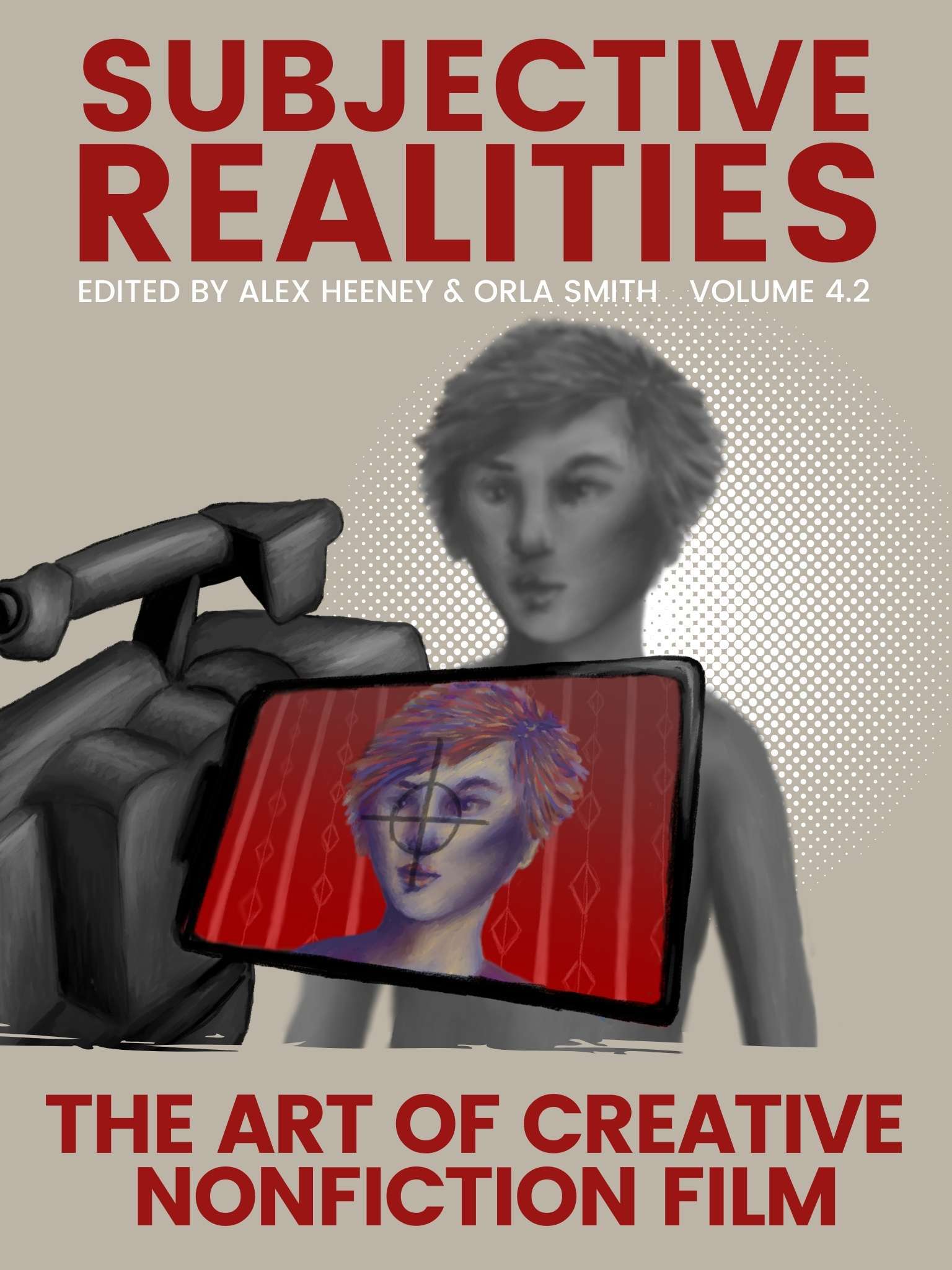Seventh Row’s editors pick the twenty best films of 2022 so far, from Ali & Ava (Clio Barnard) to Fabian – Going to the Dogs (Dominik Graf) and more.
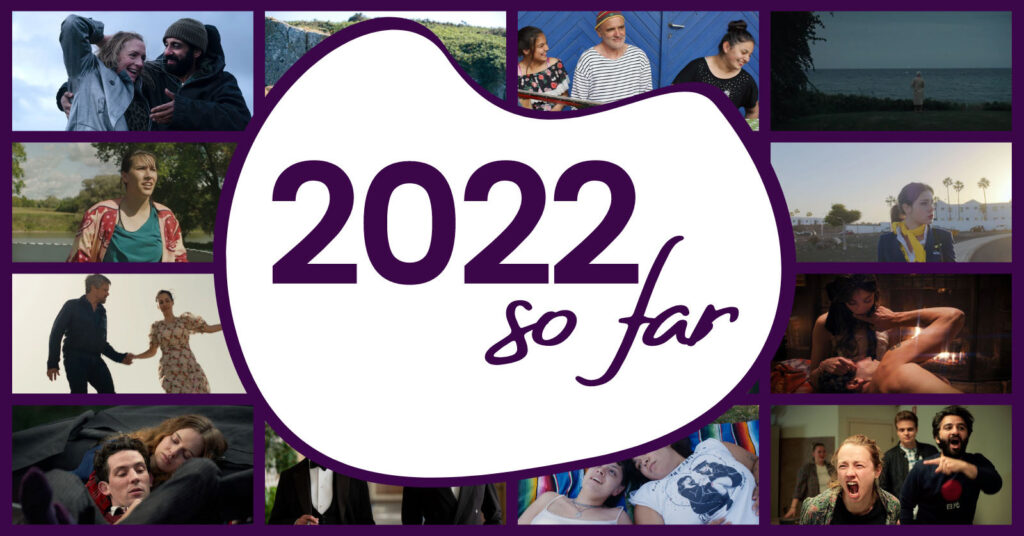
Discover one film you didn’t know you needed:
Not in the zeitgeist. Not pushed by streamers.
But still easy to find — and worth sitting with.
And a guide to help you do just that.
We’re just over halfway through 2022, so it’s time to take stock of the twenty best films of 2022 so far. The films that come out from January to August are perhaps less splashy than the fall awards titles. But the first half of the year is often rich in brilliant independent and world cinema.
We’ve not included the excellent The Dog Who Wouldn’t Be Quiet or My Donkey, My Lover, and I as they were both released in the UK and/or Canada in 2021. They also already appeared on our end of year list of the Best Films of 2021.
Here are our honourable mentions, which are all well worth your time: Lost Illusions, Murina, Fire of Love, Hit the Road, Archipelago, Stop Zemlia, Happening, Aloners, and Comets.
20. We’re All Going to the World’s Fair (Jane Schoenbrun)
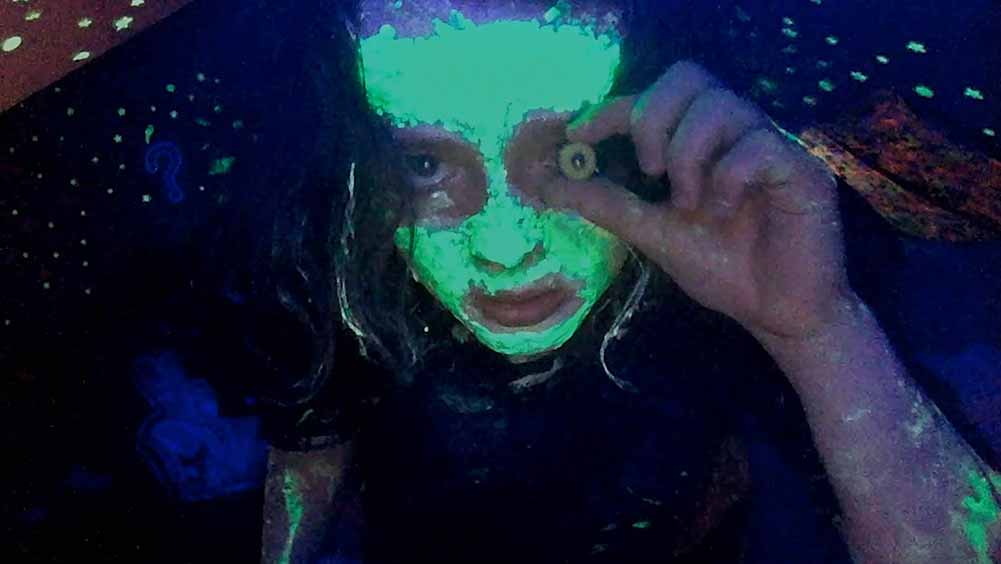
From the introduction to our interview:
“Jane Schoenbrun’s original, sometimes baffling directorial debut, We’re All Going to the World’s Fair, traps us in the claustrophobic, lonely mind of a teenage girl. Casey (intriguing breakout Anna Cobb) spends most of the film in her darkened bedroom, glued to the unnatural glow of her phone or computer screen. We never meet her friends, see her at school, or see her interacting with anyone except online acquaintances; we hear her dad’s voice a few times, but never see his face. Casey is a mystery to us beyond the strange online world she occupies.
The entrancing eight-minute opening shot — the camera takes the position of Casey’s computer screen as she prepares to record a YouTube video — sets the odd, eerie tone of the film. “Hey guys, it’s Casey. Today I’m going to be taking the World’s Fair Challenge,” she says, staring into her webcam, after cleaning up her bedroom background.
It’s unclear what this viral internet challenge challenge is supposed to do: you say, “I want to go to the World’s Fair” three times, smear your blood on your computer screen, watch a freaky YouTube video, and then wait for “the changes to happen.” We follow Casey in the days, weeks, and possibly months that follow (time is intangible in the hazy dream world the film is set in). She starts to feel different, but is she really changing, or does she just want so badly to change that she’s convinced herself the challenge is real?” Read the full interview.
We’re All Going to the World’s Fair is now available on VOD in Canada, the US, the UK and beyond.
19. The Fallout (Megan Park)
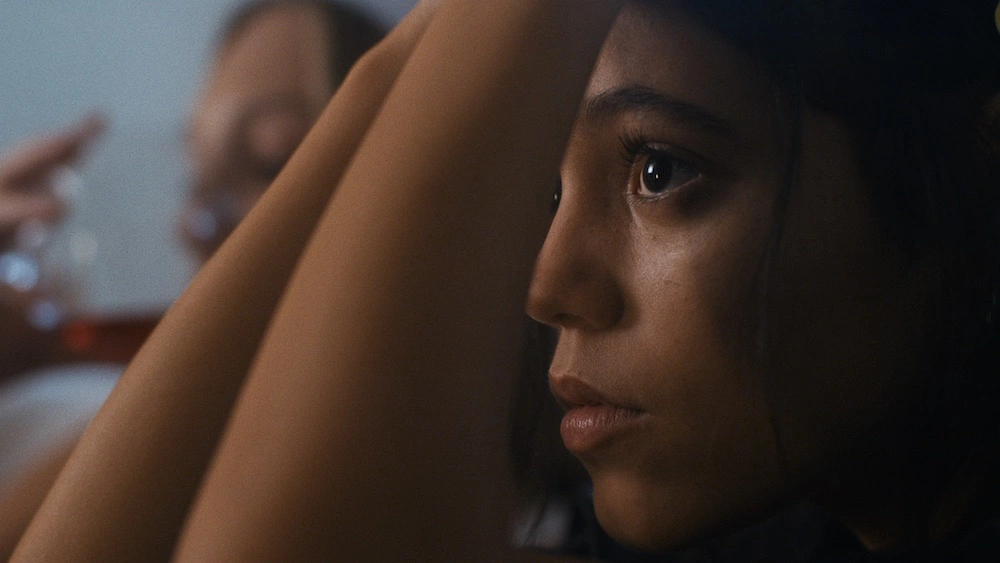
Megan Park’s The Fallout is a surprisingly thoughtful drama about a teenage girl’s recovery in the wake of a school shooting. Jenna Ortega is superb as protagonist Vada, who we follow over a few brief scenes of her everyday life at the beginning of the film. Then, when she’s in the school bathroom, she hears gunfire, and shelters, terrified, in a nearby cubicle with Mia (Maddie Ziegler, who really proves herself as an actress here) and Quinton (Niles Fitch). It’s a harrowing scene, but the film is more interested in how these young people variously deal with the trauma of a near-death experience.
Vada’s coping strategies are messy: she tries to avoid dealing with her trauma, she starts spending time with Mia and Quinton, she blows up her relationship with her (also traumatised) best friend and her little sister, and she experiments with drugs and sex. What’s most impressive about The Fallout is how it allows Vada’s path to healing to be chaotic and confusing without tying up every loose end and resolving all the hurt she causes. The film presents trauma recovery as a process with collateral damage, and one that never truly ends. Orla Smith
The Fallout is available to stream and rent in Canada, US, UK, and more.
18. Girl Picture (Alli Haapasalo)
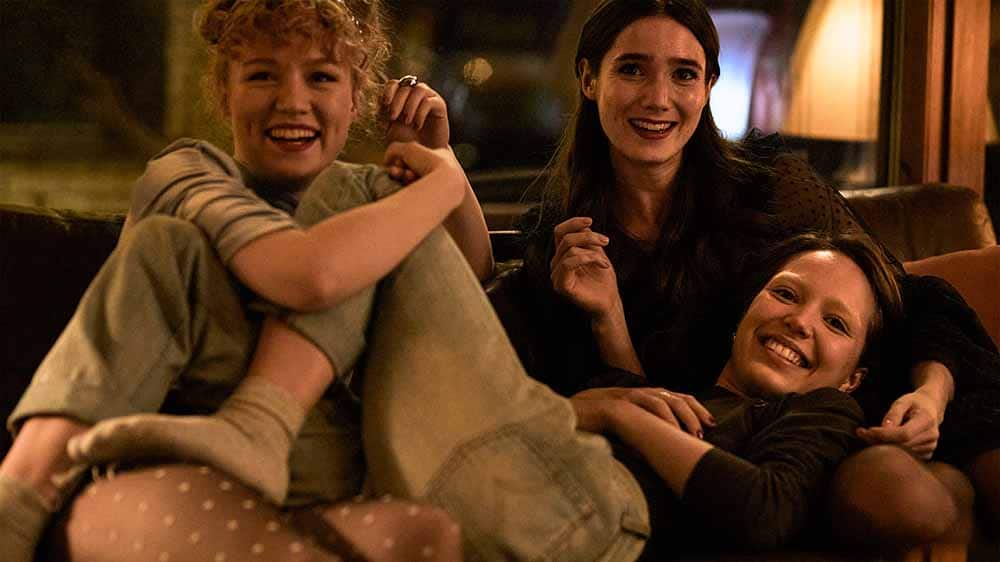
Here’s an excerpt from our Sundance review:
“Girl Picture stands out as a coming-of-ager that takes teenagers seriously, exploring how complicated sex and love can be for teenage girls, and how trauma can make relationships difficult. You’ll fall in love with these girls and want the best for them, even when they make huge mistakes.
Mimmi’s and Emma’s romance is sweet and, at least to begin with, nurturing in many ways. In Emma, Mimmi finds someone who cares about her (Rönkkö aside) after Mimmi was abandoned by her mother. In Mimmi, Emma finds something to care about outside of ice skating, which has taken over her life to an unhealthy extent. However, director Alli Haapasalo and writers Ilona Ahti and Daniela Hakulinen aren’t naive to how such a co-dependent dynamic can soon turn sour. Both girls cling to each other to meet emotional needs that aren’t met elsewhere in their lives, and they soon start to hurt each other, particularly Mimmi, whose abandonment issues manifest in cruel ways.” Read the full review
Listen to us discuss Girl Picture on the podcast.
Girl Picture is now in cinemas in Canada and the US.
17. The House (Emma de Swaef, Marc James Roels, Niki Lindroth von Bahr, Paloma Baeza)

I was drawn to The House pretty much exclusively because of director Niki Lindroth von Bahr, who I will follow to the ends of the earth after her weird and wonderful short film The Burden. She’s one of three sets of directors on The House; it’s a three-part stop-motion anthology film directed by von Bahr, Paloma Baeza, and directing duo Emma De Swaef and Marc James Roels. Each story — one Victorian-era, one present day, and one in the near future — follows the owners of the same house, at different points in time.
It’s a suitably creepy gothic horror, filled with stunning animation. But what delighted me about The House is that it’s not just spooky, but it’s also about something. The series as a whole is a sort of exploration of property ownership, and how the possession of this house is corrosive to the owner. Each filmmaker takes that prompt in different, thoughtful directors. Von Bahr’s segment is probably my favourite: it features Jarvis Cocker as a rat trying to sell a house, and a brief musical number with cockroaches, which puts the cockroach tap dancing in Cats to shame. But all three segments are pretty strong. OS
The House is available internationally on Netflix.
16. Fabian: Going to the Dogs (Dominik Graf)
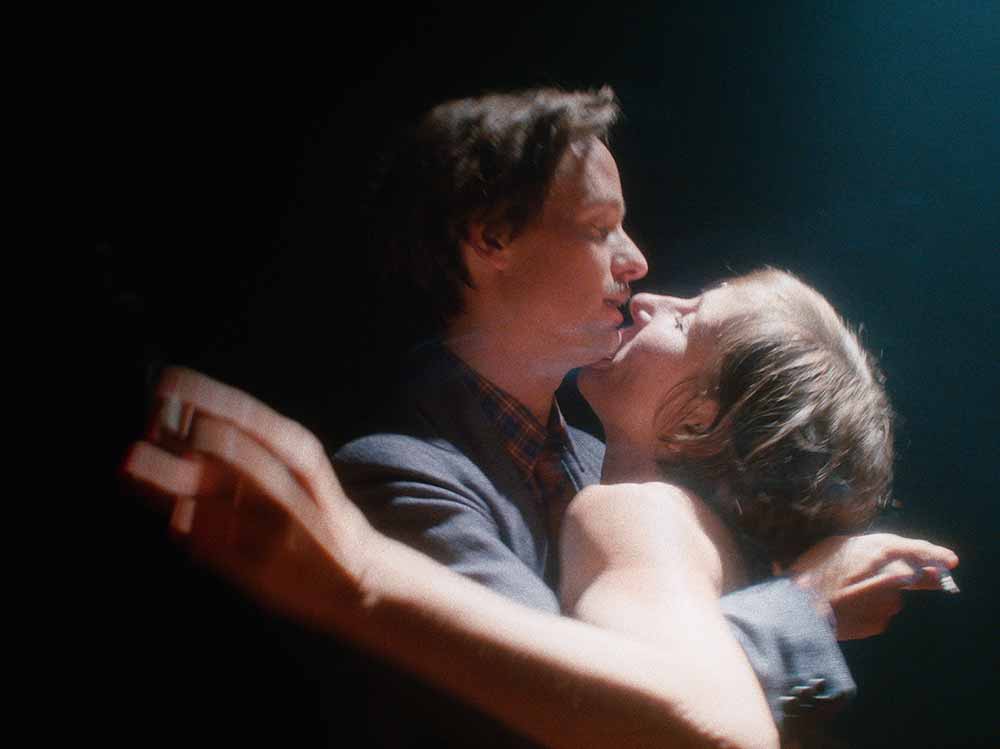
Here’s an excerpt from our Berlinale review:
“Based on the 1932 novel Fabian or Going to the Dogs by Erich Kästner, Dominik Graf’s film adaptation transports us to a 1931 Berlin. It looks a lot like the present day, but with period clothing, Nazi pamphlets (and brownshirts), and the occasional period footage of the nightlife. Mixing Super 8 footage with digital to capture the characters, and occasional archival footage to evoke the time, Graf’s dynamic film is vivacious, unpredictable, moves at a clipped pace, and is never boring despite its three-hour runtime. While the sets and costumes are period-accurate, the performances are entirely modern, without any affects of the past, which is just one of many smart ways Graf connects the 1931 action to our present day reality.” Read the full review
Listen to our podcast on Fabian: Going to the Dogs
Rent or stream Fabian: Going to the Dogs in Canada and the US.
15. 1970 (Tomasz Wolski)
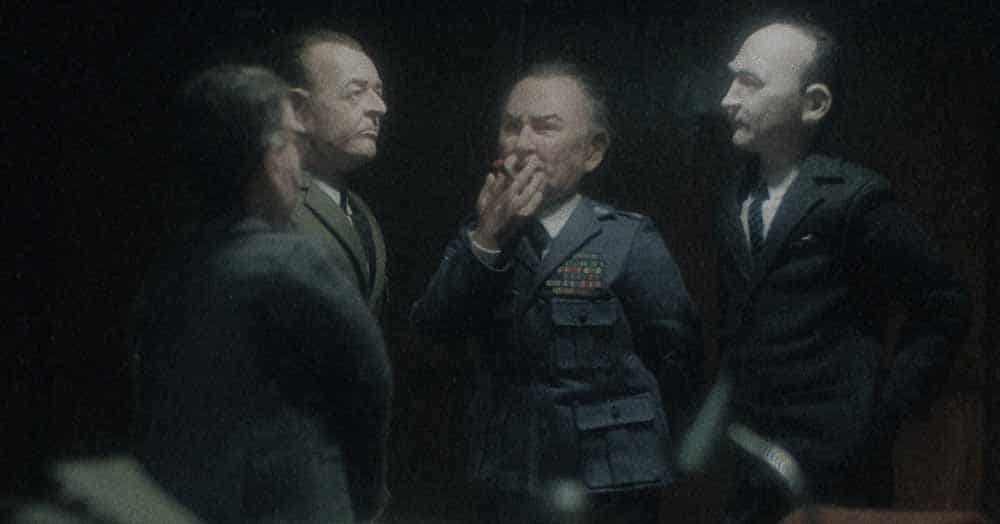
From the introduction to our interview:
“Tomasz Wolski’s fascinating documentary 1970 is probably the most formally inventive film I saw at Visions du Réel, rightly taking home the prize for the International Feature Competition. When Wolski stumbled upon real-life recordings of telephone calls between Polish dignitaries discussing their strategy for dealing with the 1970 workers’ rebellions, Wolski knew he had to build a film around them. To help us follow the conversations, he created puppets of each of the characters on the phone call, and used stop-motion animation to take us inside their homes and board rooms. ” Read the full review.
Read our in-depth interview with Wolski on making his animated documentary 1970
Rent or buy 1970 on Projectr in Canada and the US here.
Explore the spectrum between fiction and nonfiction
Subjective realities: The art of creative nonfiction is a tour through contemporary creative nonfiction, aka hybrid or experimental documentaries. Discover films that push the boundaries of the documentary form.
The book contains an in-depth interview with Tomas Wolski on 1970 as part of the case study on animated documentary.
14. Young Plato (Neasa Ní Chianáin)
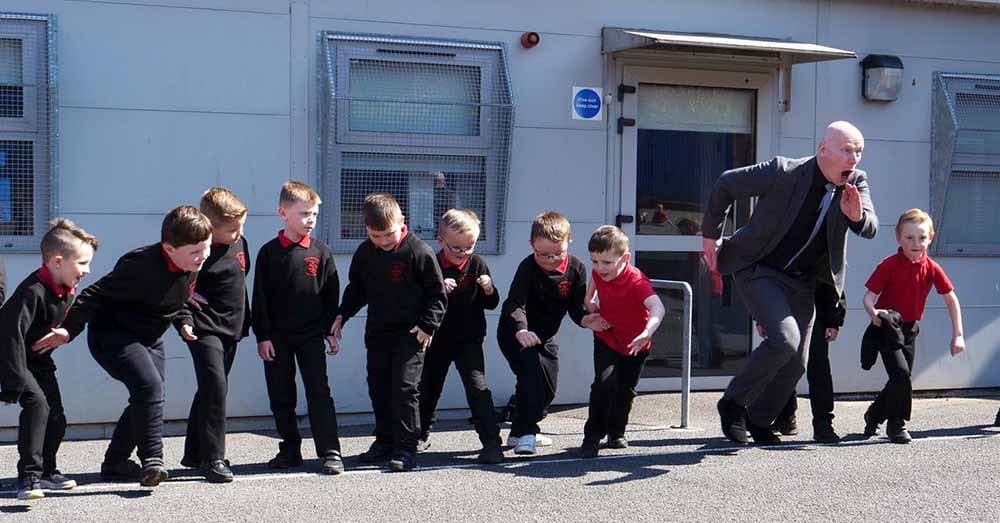
Here’s an excerpt from our review:
“With Young Plato, Neasa Ní Chianáin continues her cinematic exploration — which began with In Loco Parentis (School Life) — of exceptional Irish teachers and the children whose lives they change. In School Life, which she co-directed with David Rane (who serves as a producer, though not a director, on Young Plato), Ní Chianáin followed two teachers at an Irish boarding school, married couple Amanda Leyden and John Leyden, to show how these teachers took care of the children’s emotional and intellectual needs.
In Young Plato, this time co-directed with Declan McGrath, Ní Chianáín (also serving as cinematographer) trains her camera on teacher Kevin McArevey, who teaches philosophy as a way to help boys process their emotions and find better ways of dealing with their anger. Both films keenly depict how great teachers who value critical thinking can be an important route to social change — but they can’t always entirely counteract the influence of wider society.” Read the full review.
Rent Young Plato on VOD in the UK. It will be available on VOD in Canada and the US in late September.
Discover more great documentaries with the ebook Subjective realities >>
13. A Tale of Love and Desire (Leyla Bouzid)
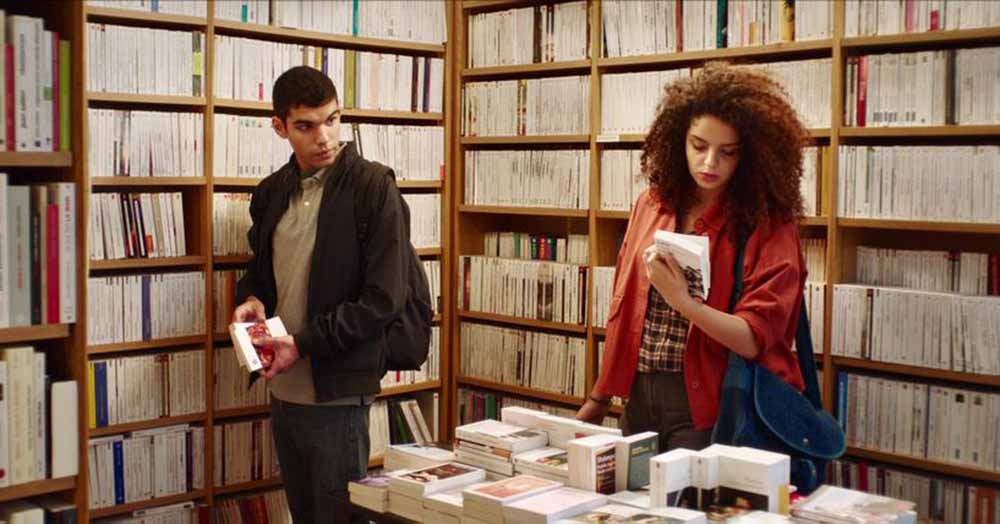
Here’s an excerpt from our review: “In Leyla Bouzid’s second feature, A Tale of Love and Desire, things get complicated for eighteen-year-old Ahmed (Sami Outabali) — the Parisian child of Algerian refugees who has never been to Algeria — when love and desire become intertwined. Bouzid’s thoughtful, sensitive, and sensual first feature, As I Open My Eyes, was the story of a young Tunisian woman coming up against patriarchy and government oppression as she tries to find her place in the world; A Tale of Love and Desire is a much more internal story.
That’s not to say that Ahmed doesn’t face casual racism and classism or the pressures to conform to two different standards of masculinity — a French, sexually liberal, cosmopolitan ideal and a more conservative but virile Arabic ideal. But none of these forces are actually stopping him from getting what he wants when it comes to love and desire. They’re just causing immense inner turmoil. ”
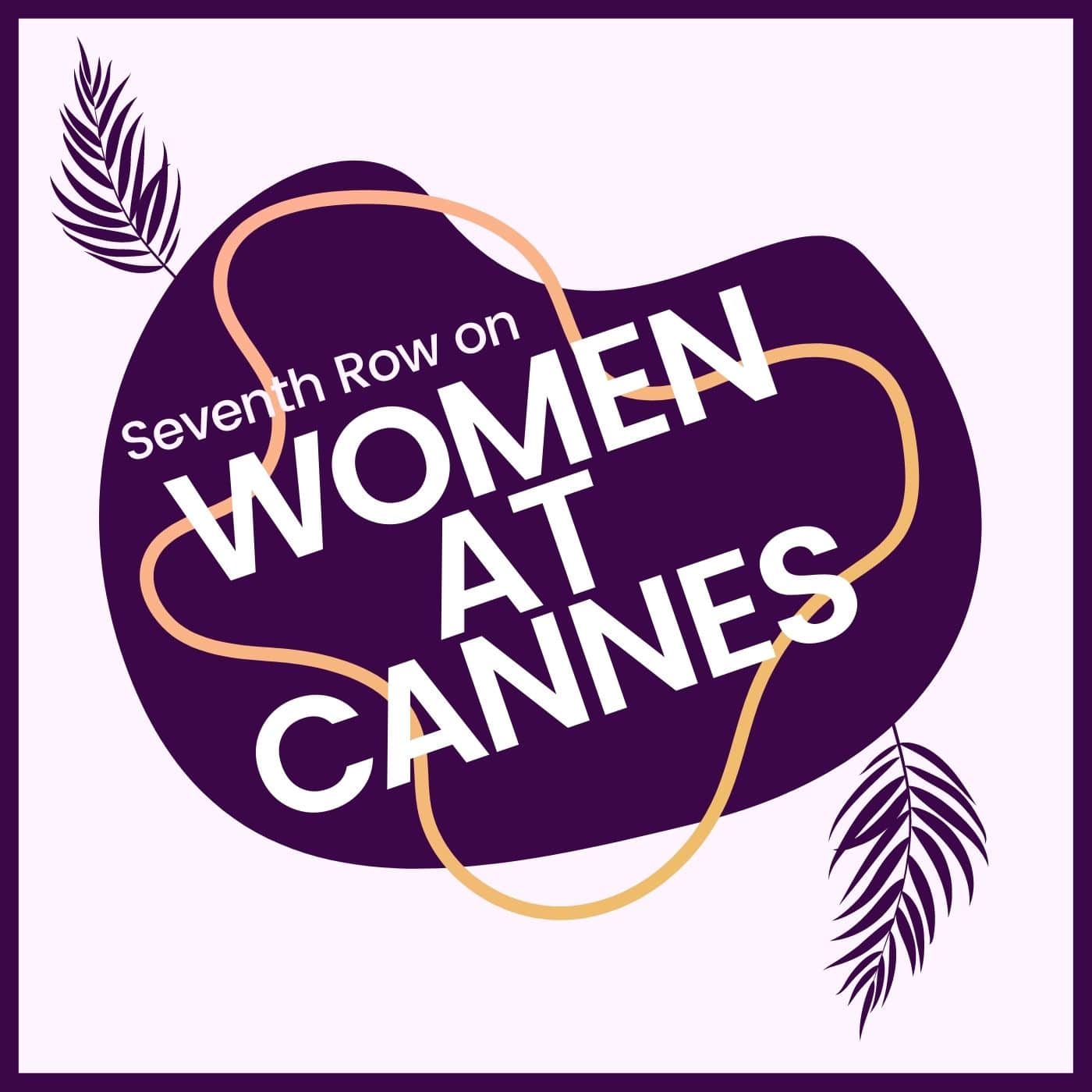
Listen to the podcast season on Women at Cannes
Over the course of five episodes, we celebrate achievements of women directors at the Cannes Film Festival in Competition and beyond, both in 2022 and in the past — and take the festival to task for its history of sexist programming.
A Tale of Love and Desire is available on VOD in Canada, US, and UK. The film had its world premiere in the Critics’ Week sidebar at Cannes 2021.
12. Zero Fucks Given (Julie Lecoustre and Emmanuel Marre)
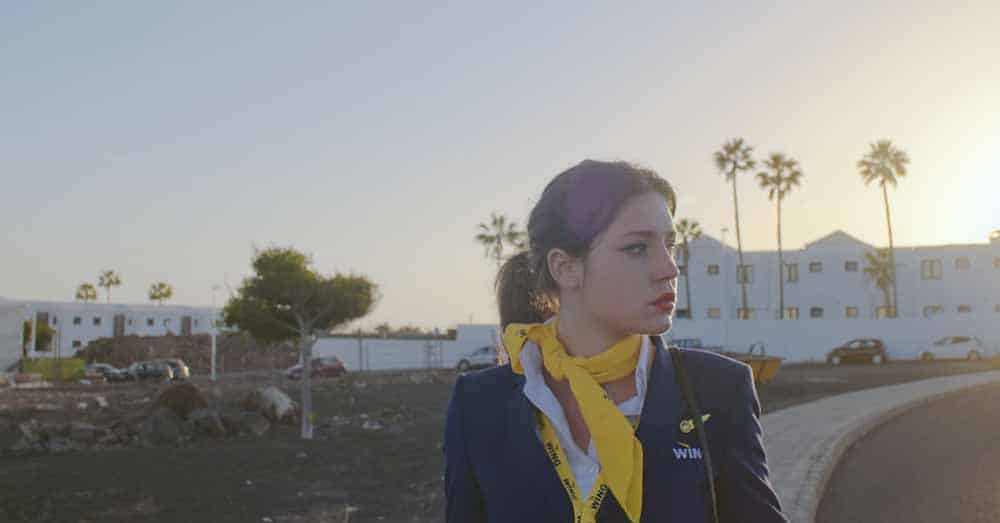
Here’s an excerpt from our review:
“Late in Julie Lecoustre and Emmanuel Marre’s Zero Fucks Given, Cassandre (Adèle Exarchopoulos) does an online interview for a job as a flight attendant at a private plane company in Dubai. It starts out innocuous — she’s asked to explain how she’d manage certain difficult situations — but it gets increasingly creepy and invasive. How does she stay fit, the disinterested man asks, not because the job requires fitness but because the looking hot part of it does. Before making his final determination about whether she’d be a good fit for the company, he asks her to parade in front of the webcam, and turn around — making sure she looks the gorgeous, feminine part. It’s harrowing and the most explicit objectification that Cassandre faces in the film, but hardly the first case.”
Stream Zero Fucks Given on Mubi worldwide.
11. Sharp Stick (Lena Dunham)
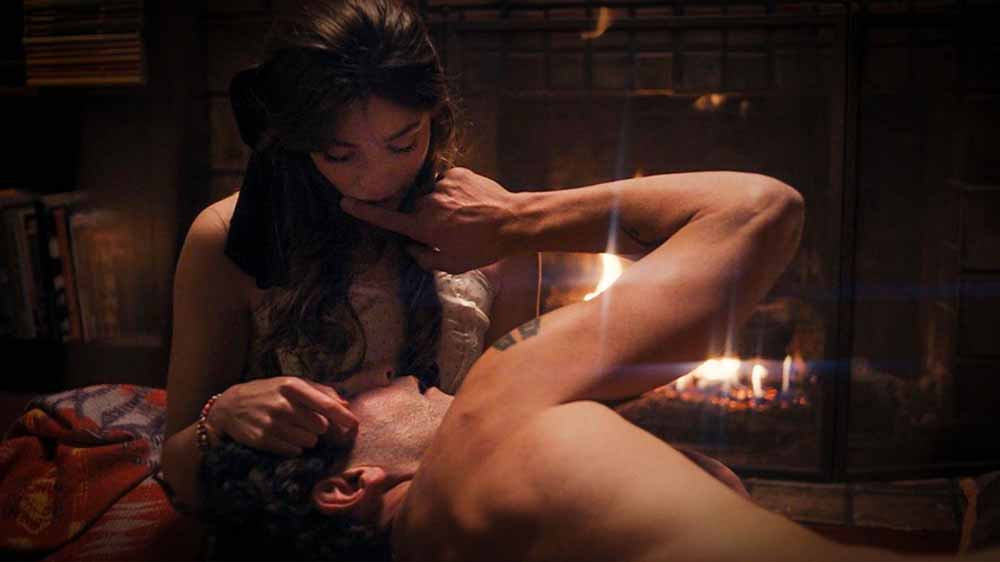
Lena Dunham is back to feature filmmaking with Sharp Stick, a prickly, hilarious film about Sarah Jo (Kristine Froseth), a naive twenty-six year old who has decided to finally explore her sexuality. Key to her exploration is the fact that, at fifteen, she has a radical hysterectomy, and has since had a complicated relationship with her body as a woman who can’t have children. The film is about her figuring out what she wants from sex and romance with men… but mostly with sex.
In a Sundance full of predictably structured, pretty conventional fiction films, it’s exciting that, after watching Sharp Stick, I didn’t feel like I fully had a handle on it. I feel like I need a second viewing of the film to be able to know totally what I think of it, and how to write about it. It’s one of the best directed films of the festival, and certainly the funniest. It’s also full of great performances, from Froseth, as well as John Bernthal, Jennifer Jason Leigh, Taylour Paige, Scott Speedman, Dunham herself, and more. OS
Listen to us discuss Sharp Stick on the podcast >>
Rent Sharp Stick on VOD in Canada and the US.
10. Ninjababy (Yngvild Sve Flikke)
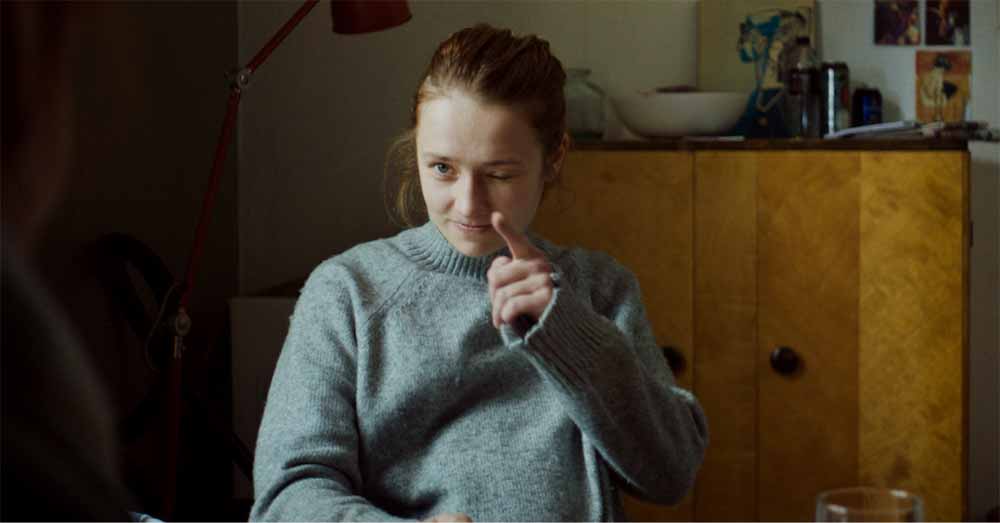
From the introduction to our interview with Yngvild Sve Flikke and Kristine Thorp:
“Rakel (Kristine Thorp), twenty three, is a bit of a mess — but joyfully so. ‘She’s really just enjoying life,’ said Yngvild Sve Flikke, writer-director of the delightful Ninjababy, of which Rakel is the main character. ‘She doesn’t know what she’s going to be. If she wants sex, she’s having sex, and she doesn’t really remember who she had sex with.’ Her hair is permanently greasy, hanging loose or pulled back into a functional ponytail, and her clothes are mismatched and oversized (although enviably comfy). In short, she hasn’t quite figured herself out yet, but she’s in no rush to. A spanner is thrown in the works when an unwanted pregnancy threatens to catapult Rakel toward responsibility, right at the moment in her life when she was revelling most in irresponsibility.”
Listen to the podcast on Ninjababy, Obvious Child, and unwanted pregnancies in romantic comedies >>
Watch Ninjababy on VOD in Canada, US, and UK.
9. Mija (Isabel Castro)
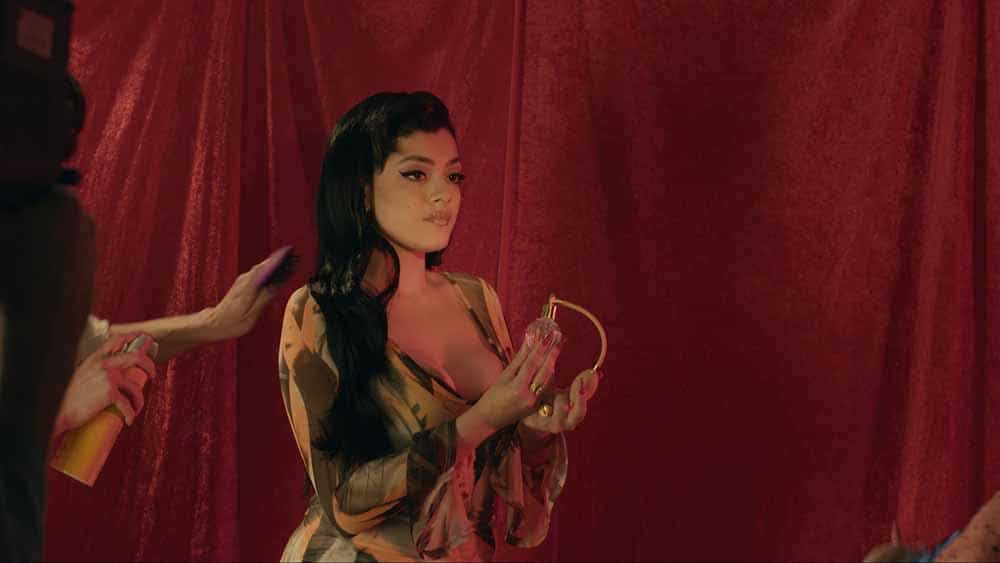
From our review:
“Mija, directed by Isabel Castro, is a poignant and beautifully shot character study documentary about what the American Dream means to many immigrant families. The idea of a film about ‘The American Dream’ often makes me gag, because so many films accept the idea uncritically (the exceptions, such as Kelly Reichardt’s work, are a small handful). Mija is more realistic, if still invested in the hopes and dreams of its protagonists. Castro is also interested in what happens after you’ve achieved meteoric success… but then you lose it, and you don’t have a cushy safety net to fall back on.”
Listen to us discuss Mija and other creative nonfiction films at Sundance on the podcast >>
Mija will be released on Disney Plus worldwide in late September.
8. Benediction (Terence Davies)
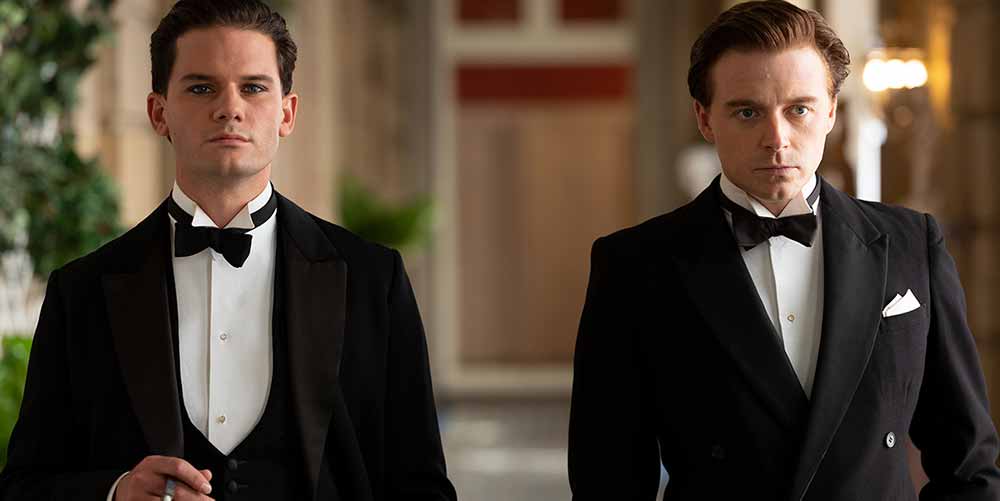
From our review:
“Benediction begins with a young poet, Siegfried Sassoon (Jack Lowden), fresh out of catching an inspirational Stravinsky concert, signing up with his brother to fight in World War I. Davies moves so quickly here that whatever excitement Sassoon may have felt as a young soldier is almost immediately dampened by the sad look in his mother’s eyes as he leaves the station, the lament in voiceover that he never said goodbye to his brother, and the black-and-white archival footage of men dying on the battlefield, narrated by Lowden with one of Sassoon’s poems. The war changed him quickly, and the film’s tone changes quickly, too, almost brutally so.”
Listen to us discuss Benediction on the TIFF podcast >>
Rent Benediction in Canada, the US, and the UK.
7. Mothering Sunday (Eva Husson)
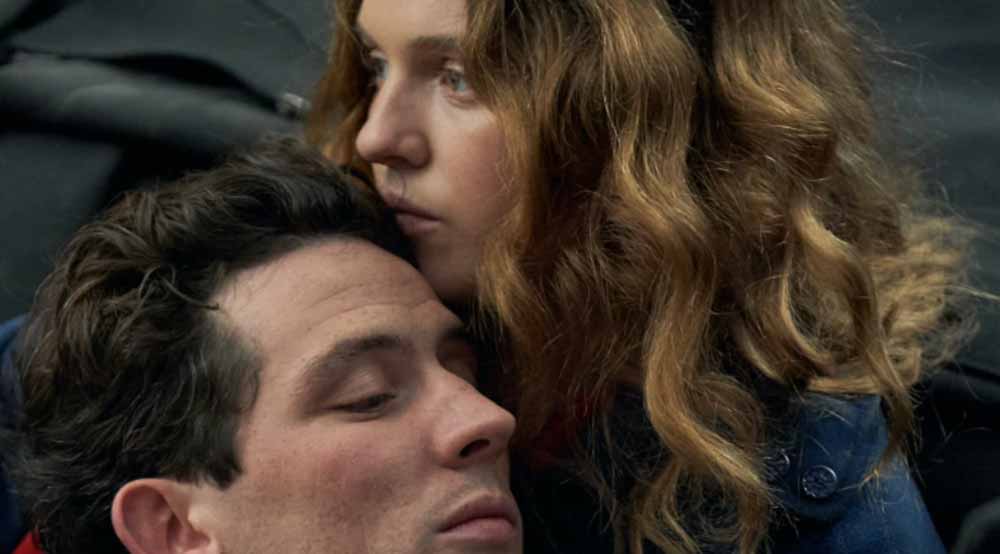
Mothering Sunday is the story of two love affairs in the life of Jane Fairchild (Odessa Young) and how they shaped her into a writer. Like in Shirley, Young brings warmth and spirit to the part of a woman who pursues romantic passion more than once, despite the heartache, and is somehow years ahead of her first partner (Josh O’Connor) in maturity. Much of the film is about watching Jane watch the people and places around her, observing the world she will write about, and Young always convinces you this is a thinking, feeling young woman whose thoughts you want to hear. She also effortlessly handles the idealism of her younger self and the more world-wearied cynicism of the later timeline, a bit more worn down by life, but no less willing to give it her all. AH
Listen to us discuss Mothering Sunday and other portraits of female artists on the podcast >>
Rent Mothering Sunday on VOD in Canada, US, and UK.
6. Ahed’s Knee (Nadav Lapid)
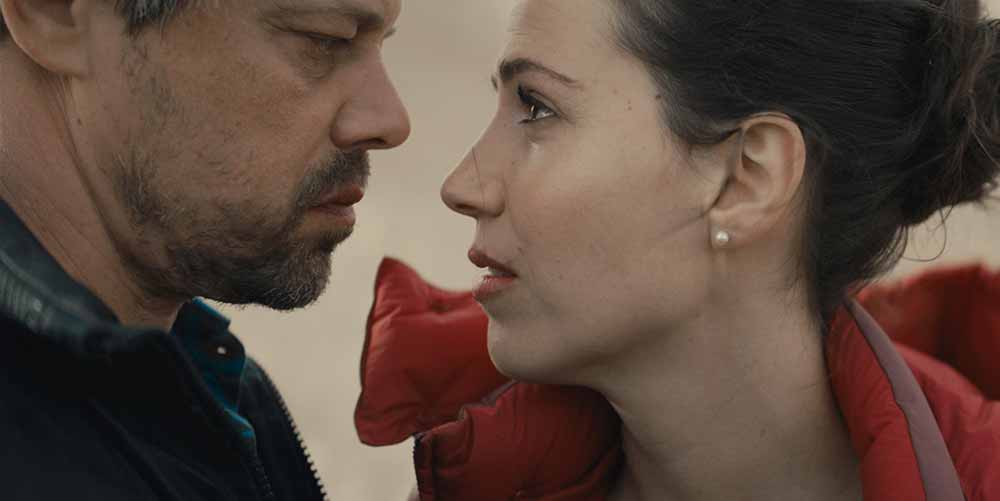
From our review:
“With a global pandemic, wars, genocide, and climate change raging on throughout the globe — all of it preventable — there’s a lot to be angry about at the moment. Yet as individuals, it can seem like there’s little we can do to stop these things: our small actions can only go so far if they aren’t supported by the world’s leaders. I’ve felt so much rage and nihilism lately over how little agency I have to fix global problems; it makes it easy to stop thinking of yourself and others as individuals whose personal problems are also worthy of concern. Nadav Lapid’s latest, Ahed’s Knee, bottles this frustrated feeling better than any other piece of art I’ve seen in the last few years.”
Watch Ahed’s Knee on VOD in Canada, US, and UK.
5. Run Woman Run (Zoe Leigh Hopkins)
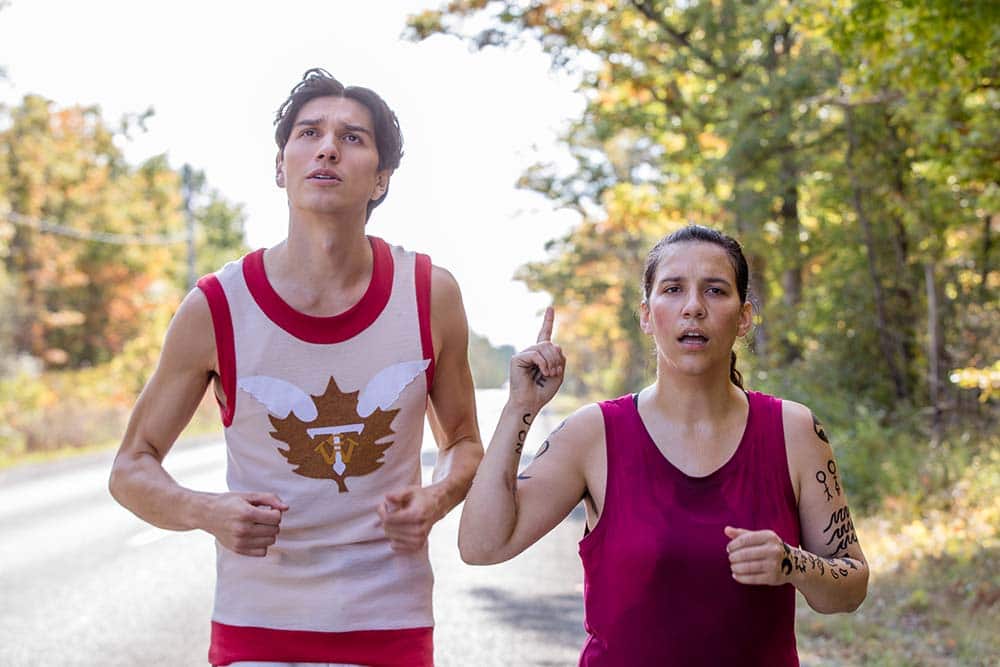
From the introduction to our interview:
“With Run Woman Run, her second feature film, Zoe Leigh Hopkins tells a story that’s rarely been seen on screen before. It’s a film about coming of age in your thirties, but through the perspective of an Indigenous woman. It seriously addresses the intergenerational trauma that Indigenous people live with, but it’s a feel-good film that’s ultimately funny and uplifting. It’s about a woman who has a child, a job, and romantic prospects, but none of those things are the centre of her story or eclipsing everything else.”
Listen to the podcast on Run Woman Run, a thirtysomething Indigenous coming-of-age story >>
Run Woman Run is on VOD in Canada. It is still seeking international distribution.
4. Mr. Bachmann and His Class (Maria Speth)
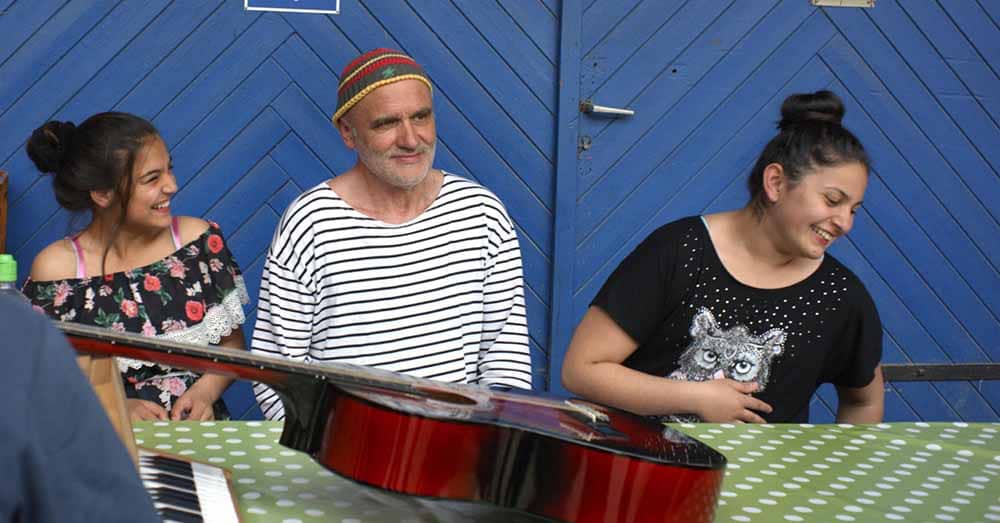
The three-and-a-half-hour length of Maria Speth’s documentary, Mr. Bachmann and His Class, might make you think of the work of Frederick Wiseman. But Mr. Bachmann is less interested in institutions than it is in character growth. Over the course of one school year, Speth follows Dieter Bachmann, a soon-to-be-retired school teacher, and his last class of pupils.
In the small and rural city of Stadtallendorf, Germany, many of the pupils are immigrants or children of immigrants, and for some, German isn’t their first language. In an education system that might otherwise cast these children aside, Bachmann carves a space for them to grow. His unconventional teaching methods — allowing naps during school time, holding musical jamming sessions with the pupils — nurture the kids. He encourages open dialogue in his classroom as a way to teach his kids empathy and to persuade the higher achieving amongst them to help those who are struggling. It’s a film that, I’m sure, will encourage many people to become teachers, because it shows how much of a difference one teacher can make if they’re willing to fight for their students. OS
Mr. Bachmann and his class is available on Mubi in Canada, the US, the UK, and internationally.
3. Wood and Water (Jonas Bak)
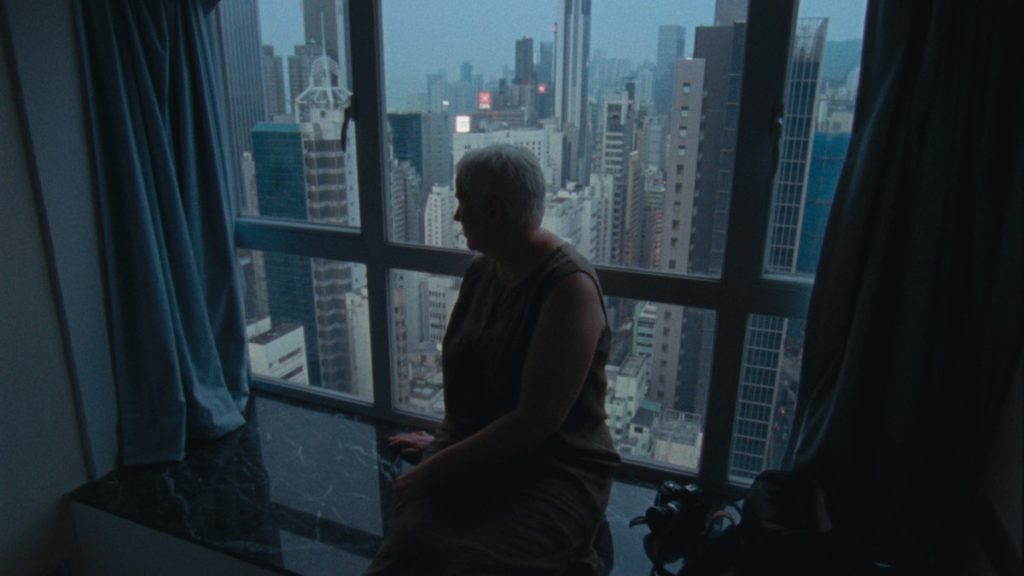
It’s hard to draw the line between fiction and nonfiction in Jonas Bak’s Wood and Water, in which he casts his mother as herself, Anke (Anke Bak), visiting her son in Hong Kong (where Bak used to live), but only seeing his apartment rather than him. His siblings also make guest appearances as themselves early in the film. To make Wood and Water, the pair travelled to Hong Kong amidst the 2019–2020 protests, which are documented on screen in the film.
Bak’s interest in people’s relationships to places and the way that sound design defines place make this film very Akermanian in spirit. In the woods, where Anke lives in Germany, the quiet is defined by breezes and birds. In the city, in her son’s high rise apartment, she looks over the downtown from dozens of flights up, separated from the loud din of the city — until she opens a window.
Wood and Water is about exploring new places, longing for people and places, and the attempt to connect to people through the places that matter to them. When not knitting in her son’s apartment, Anke explores the streets, meets some locals, and ponders what has attracted her son to this city. In the process, there are sequences of exquisite beauty, like when Anke enters a highway tunnel in Germany, and Bak focuses on the pattern of lights in the ceiling, only to exit the tunnel in Hong Kong. The tall buildings define the landscape where tall trees did in Germany. AH
Stream Wood and Water on Criterion Channel in Canada and the US. Rent on VOD in Canada, the US and UK.
2. Anaïs in Love (Charline Bourgeois-Tacquet)
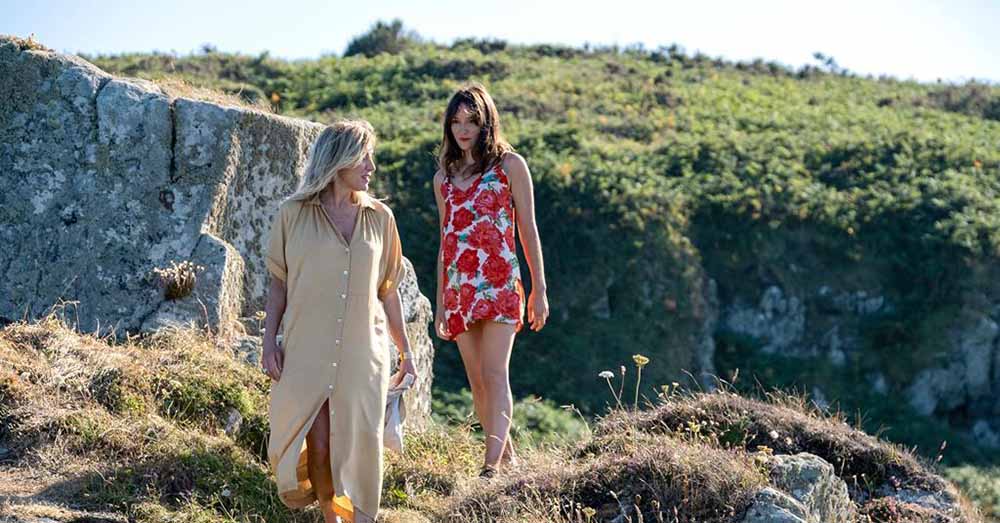
Here’s an excerpt from our review: “Anaïs (Anaïs Demoustier in top form) bursts into Anaïs in Love at a run, exiting a flower shop with a bouquet and rushing home to change for a party and meet her landlord. Her landlord wants to have a discussion about the late rent; Anaïs, meanwhile, is concerned with getting ready for the party and simultaneously talking at the landlord about the difficulties of finding love and a relationship.
As her soon-to-be ex-boyfriend describes it, she’s like a bulldozer: always moving and running over whatever you might think a scene or conversation is about. She can be frustrating, but it’s hard not to be charmed by her insistence on walking up sixteen flights of stairs to avoid the claustrophobia of an elevator, or how she asks every single person she meets about whether she’s made the right choices in her love life. Anaïs in Love is a coming-of-age film in which Anaïs has multiple relationships, none of which are necessarily long term, but all of which get her closer to figuring out what she wants out of life and a relationship.” Read the full review.
Rent Anaïs in Love in the UK and the US. Stream the film on Crave Canada in French (no English subtitles).
1. Ali & Ava (Clio Barnard)
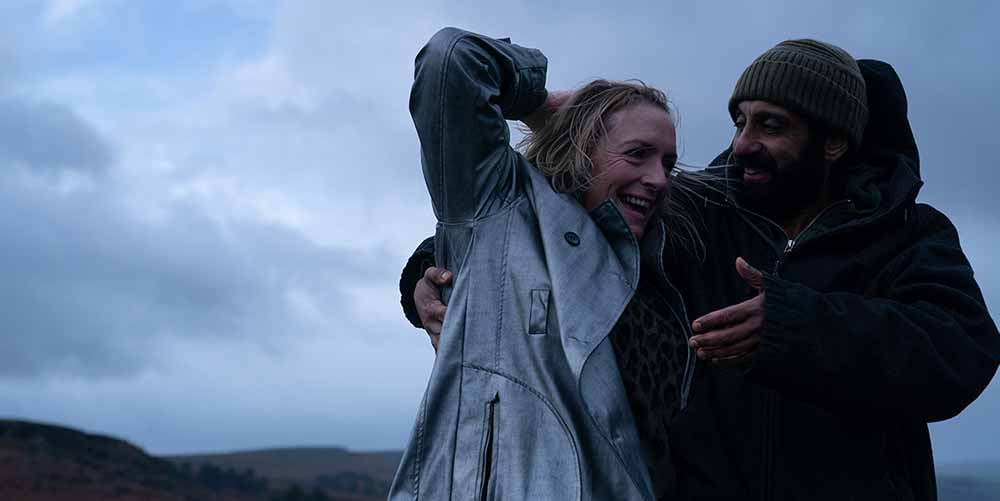
From our review:
“‘I love this city,’ Ali (Adeel Akhtar) tells Ava (Claire Rushbrook) partway through the film. As British cities go, Bradford is oft-maligned or forgotten, especially by those who live in London and in the south of the country. In her films, especially Ali & Ava, Barnard takes the time and care to show us the heart of the city, exhibiting why the people who live there, like Ali, might love it. She portrays Bradford as a small and tight-knit community: we see Ali make a cup of tea in his kitchen, then carry the mug outside to the next house over, where his mum lives.
Later, when Ali is stuck in a traffic jam, he spots a group of funeral goers and rolls his window down to ask who died; there’s a good chance it’s someone he knows, even just in passing. Everyone knows each other here, and in turn, everyone is always helping each other, whether it’s Ali constantly offering people lifts in his car, or Ava regularly babysitting her neighbour’s daughter.”
Stay tuned for our in-depth career interview with Clio Barnard.
Listen to us discuss Ali & Ava on the podcast >>
Stream Ali & Ava on Netflix in the UK. Rent on VOD in Canada, the US, and the UK.
You could be missing out on opportunities to watch the best films of 2022 so far at virtual cinemas, VOD, and festivals.
Subscribe to the Seventh Row newsletter to stay in the know.
Stay up to date on great new streaming options in Canada, the US, and the UK.
Click here to subscribe to the Seventh Row newsletter.
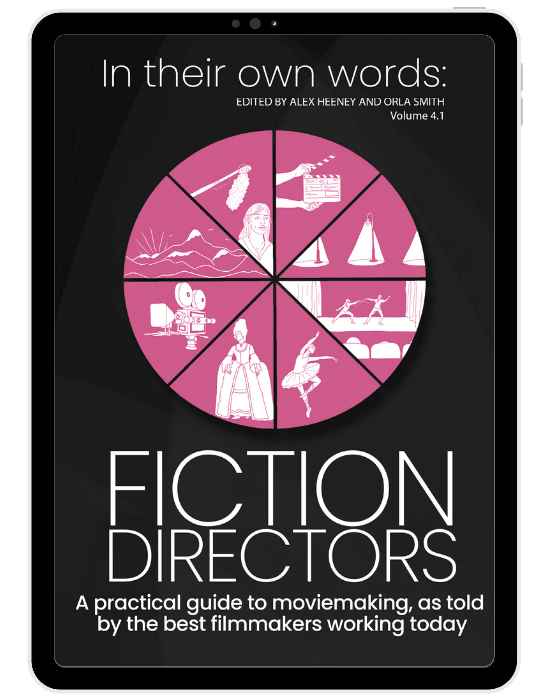
Discover how the best filmmakers working today approach filmmaking
A practical guide to moviemaking, as told by the best filmmakers working today.
